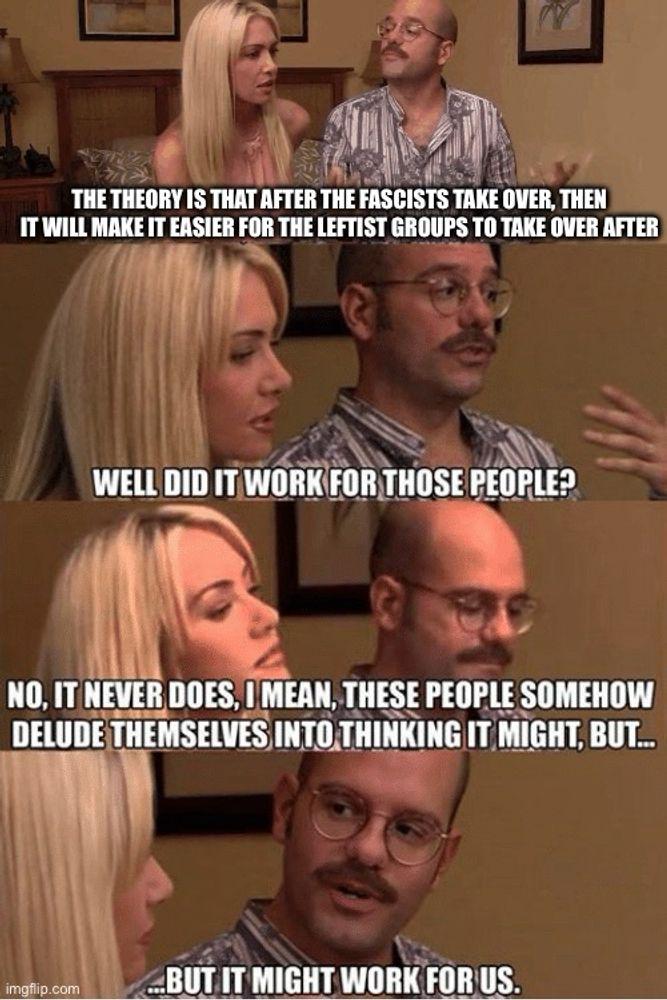this post was submitted on 02 Mar 2024
866 points (100.0% liked)
196
17963 readers
503 users here now
Be sure to follow the rule before you head out.
Rule: You must post before you leave.
Other rules
Behavior rules:
- No bigotry (transphobia, racism, etc…)
- No genocide denial
- No support for authoritarian behaviour (incl. Tankies)
- No namecalling
- Accounts from lemmygrad.ml, threads.net, or hexbear.net are held to higher standards
- Other things seen as cleary bad
Posting rules:
- No AI generated content (DALL-E etc…)
- No advertisements
- No gore / violence
- Mutual aid posts are not allowed
NSFW: NSFW content is permitted but it must be tagged and have content warnings. Anything that doesn't adhere to this will be removed. Content warnings should be added like: [penis], [explicit description of sex]. Non-sexualized breasts of any gender are not considered inappropriate and therefore do not need to be blurred/tagged.
If you have any questions, feel free to contact us on our matrix channel or email.
Other 196's:
founded 2 years ago
MODERATORS
you are viewing a single comment's thread
view the rest of the comments
view the rest of the comments

I used to know a poli-sci researcher who was trying to take a big-data look at the success and failure of revolutions, taking in variables like "how many demonstrators rallied against the government?" "How many dissidents were disappeared by internal security forces?" and even things like "how many bullet holes are there on the buildings around the main protest venue in the capital?"
I asked him once if he'd discovered the secret to a successful revolution, and he just grimaced at me.
Even the American and French revolutions weren't successful
American here, asking genuinely: how was the American revolution unsuccessful? My understanding is that the goal was to make the British go away, and that they did accomplish that in the end. What am I missing?
The goal wasn't to make the British go away, the goal was to have representation and more than half of the people in the colonies weren't even for the revolution. This is why they dressed up as natives for the Boston tea party so they could blame that shit on the natives.
The support of independence wasn't much till Paul Revere demonized the Boston massacre into being much more villainous than it was.
The colonies kinda got what they want in revolution with the articles of confederation but with the rise of the federalists the US was created as a V2 of the British empire.
That's a take
I don't see how history is a take. I literally wrote papers in college about this.
The "more villainous" part is odd to me, but the subjective claim that the federalists were just v2.0 of the British empire is strong "don't tread on me" libertarian vibes ngl
Now that's a take
Most of history is made up of stories.
We can tell different stories of history and many even conflicting ones can be true, but they don't all have the same weight in their impact to the course of events.
Yeah just like how Paul Revere made up the story about the Boston massacre to sell papers.
The Boston Massacre was a real event. British soldiers fired into a crowd of hundreds, killing several. Maybe Paul Revere embellished it, but it's not made-up.